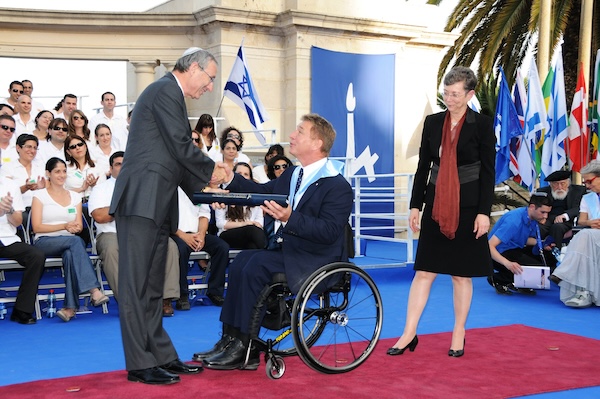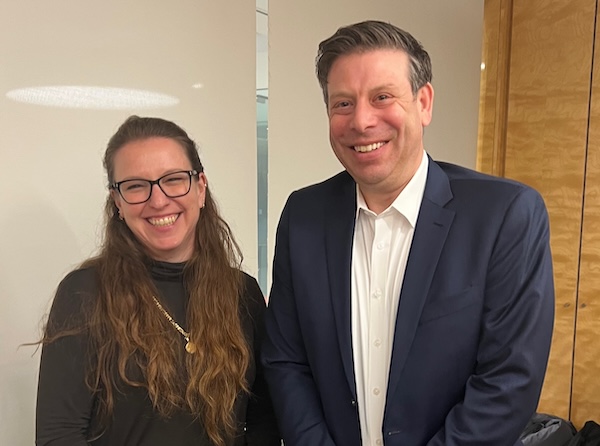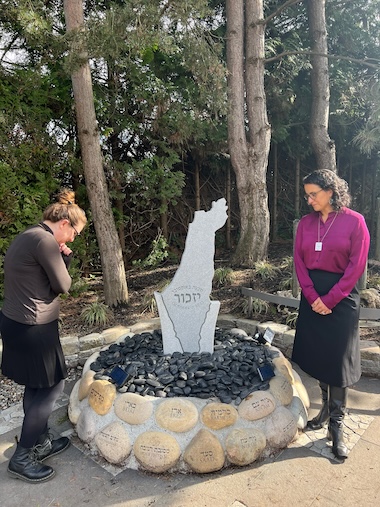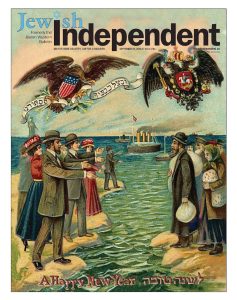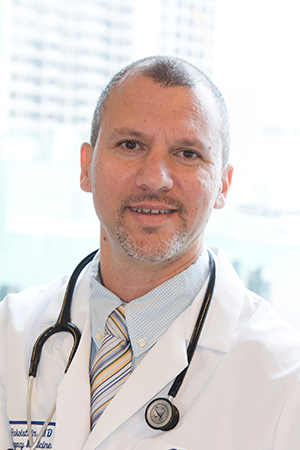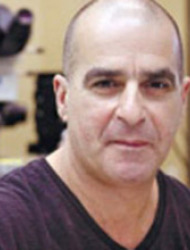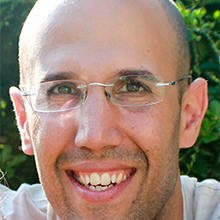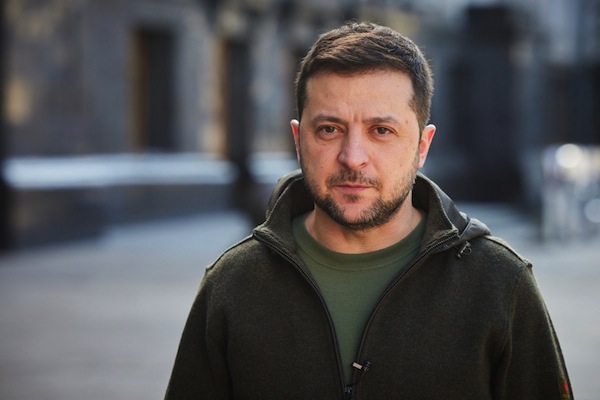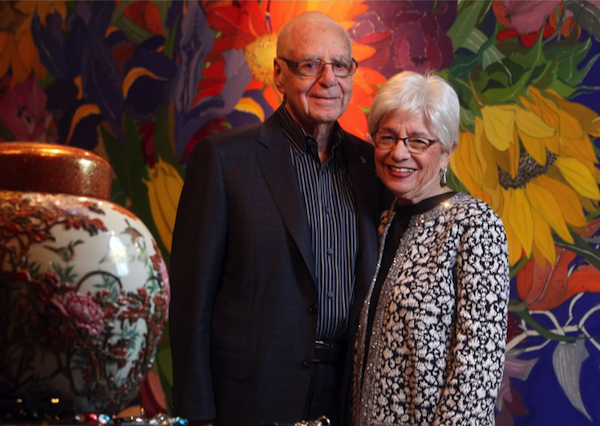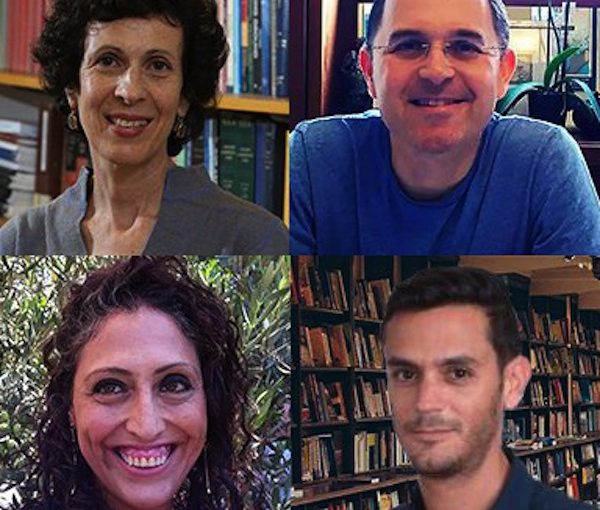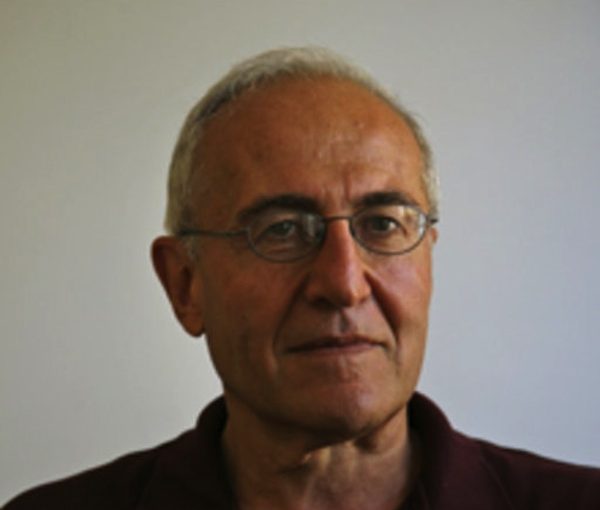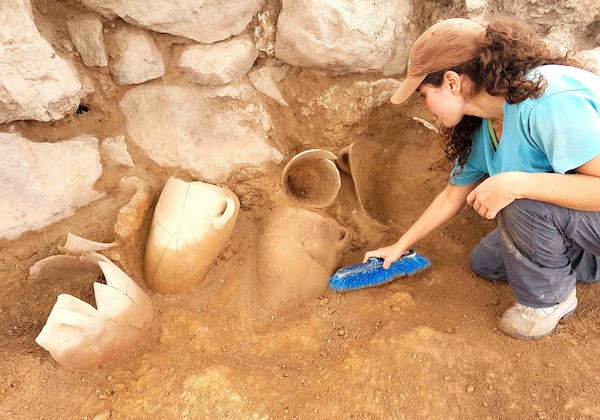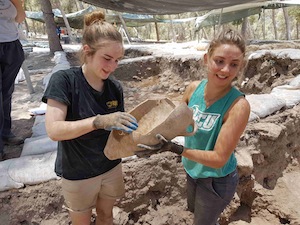Canadian Paralympic athlete and wheelchair racer Rick Hansen, known for his work to break down barriers for people with disabilities, receives an honorary doctorate from Hebrew University from then-Hebrew U president Menahem Ben-Sasson. In December 2010, Hansen visited Hebrew U as part of the 25th anniversary celebration of his “Man in Motion” tour. (photo from Hebrew University)
The Hebrew University of Jerusalem turned 100 this month. Opening officially on April 1, 1925, the university preceded the birth of the state of Israel by more than two decades.
“There was no country yet,” said Dina Wachtel, vice-president, community affairs, for the Canadian Friends of the Hebrew University. “It’s the first daughter that gave birth to her mother.”
The history of the campus on Mount Scopus has been tumultuous, like that of the country its alumni have helped shape.
During Israel’s 1948 War of Independence, Mount Scopus became an isolated enclave, and the university was forced to relocate its main activities to facilities in West Jerusalem. In 1954, a new campus was established in the Givat Ram neighbourhood, followed by the creation of additional campuses, including at Ein Kerem, home to the institution’s medical sciences faculty, and, at Rehovot, where the agriculture department is headquartered.

After the 1967 Six Day War, Hebrew University regained access to Mount Scopus and began to restore and expand the original campus. Today, it is one of Israel’s leading research institutions, ranked among the top universities globally, and it remains a symbol of intellectual and cultural renewal in the country.
“Even the word ‘incredible’ is too small to describe the impact of the Hebrew University on the establishment of the state of Israel and on the state of Israel,” Wachtel said. “Most of the Supreme Court judges are graduates of the Hebrew University faculty of law, which was established in 1949. We have eight Nobel Prize laureates – all of them from 2000 and after.” A ninth laureate, Albert Einstein, a founder of the university, won the Nobel for physics in 1921.
The university was established by the intellectual giants of the last century, said Wachtel. These included Einstein, as well as Chaim Weizmann, the Zionist leader who would become the first president of the state; philosopher Martin Buber; American Reform Rabbi Judah Leon Magnes, who served as the first chancellor and later president of the university; founder of psychoanalysis Sigmund Freud; Ahad Ha’am, dubbed the father of cultural Zionism; poet Chaim Nachman Bialik; and Herbert Samuel, British High Commissioner for Palestine, among many others.
Einstein, Wachtel noted, left his entire intellectual estate to the Hebrew U and the university is in the process of constructing a new Daniel Libeskind-designed archive for his fonds on Givat Ram’s Edmond J. Safra Campus, adjacent to the Knesset, the Supreme Court and the Israel Museum.
“I think it will be the next tourist attraction in the city of Jerusalem,” she said.
Celebratory events will take place in Israel in June, concurrent with the Hebrew University’s board of governors meeting in Jerusalem. Happenings will include a special event at the home of Israel’s president, a special show at the Tower of David Museum, and other ceremonies.

The university has been a hub for groundbreaking research, reflecting the institution’s commitment to education, scientific advancement and societal impact.
Marking the centenary, Hebrew U’s current president, Prof. Asher Cohen, credited the thinkers who initiated the school, the groundbreaking for which began in 1918.
“They and many others founded a pioneering academic institution to cultivate future leaders in research, science, public service and society – for the benefit of Israel and all humanity,” Cohen said in a statement. “From the moment this vision became a reality, the university has upheld excellence in research and education as its highest priority. Today, it continues to be a hub of knowledge, innovation and groundbreaking research across diverse fields, nurturing generations of leaders, scholars and thinkers.”
Prof. Tamir Shafer, rector of the Hebrew University, contextualized the university in Israeli society.

“As a leading research institution,” Shafer said in a statement, “the Hebrew University sees itself as responsible for educating future generations, conducting groundbreaking research across nearly all fields of study, fostering extensive international engagement in both research and teaching, building strong ties with advanced industries in Israel and abroad, nurturing a diverse academic community, and maintaining deep social involvement in Jerusalem and throughout Israel.”
Diversity is a cornerstone of the institution’s success, according to Prof. Mona Khoury-Kassabri, vice-president of strategy and diversity.
“At the Hebrew University, we believe that diversity is not a substitute for excellence but a driving force that enhances it,” she said. “Our commitment to inclusion ensures that students and researchers from all backgrounds have equal opportunities to thrive, contribute and shape the future of society. By fostering a multicultural environment, we enrich both scholarship and community, proving that true innovation emerges when different voices are heard and valued.”
The centenary will also be celebrated with special events in Canada, some of which will be announced soon. Check cfhu.org for updates.

